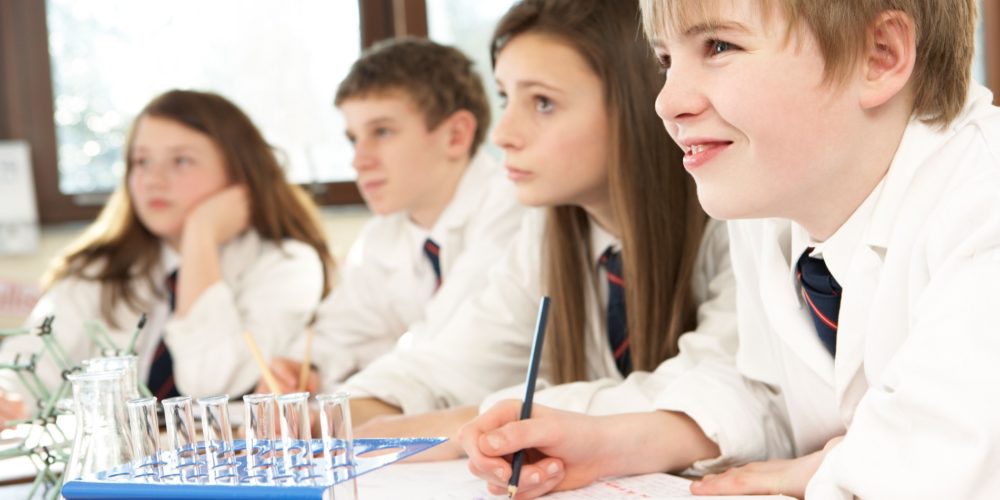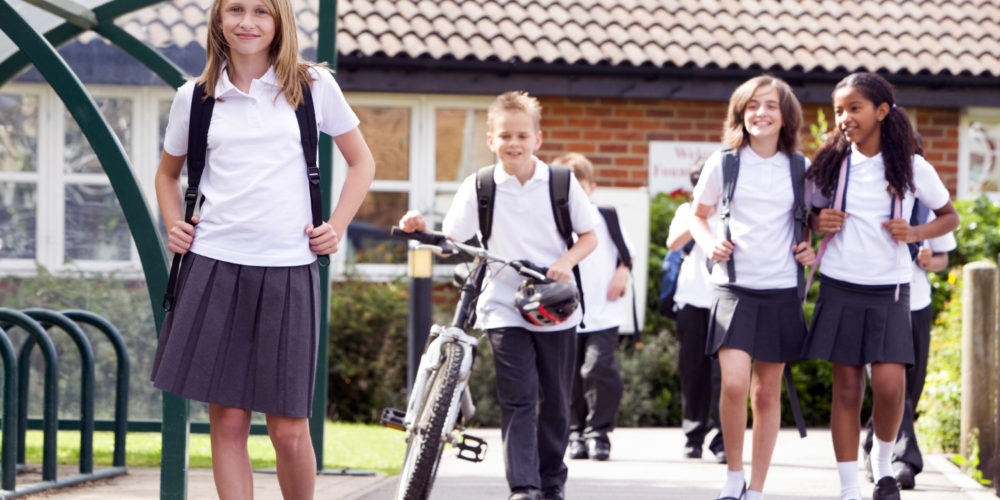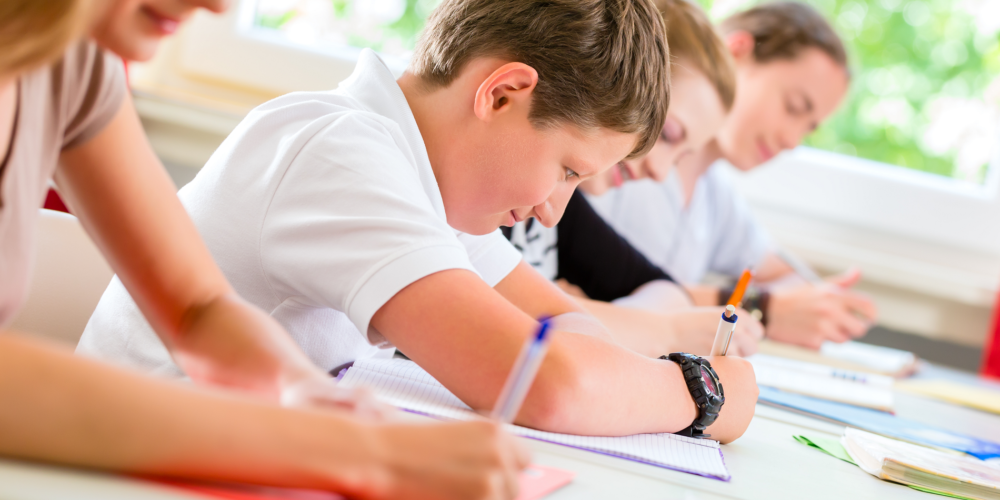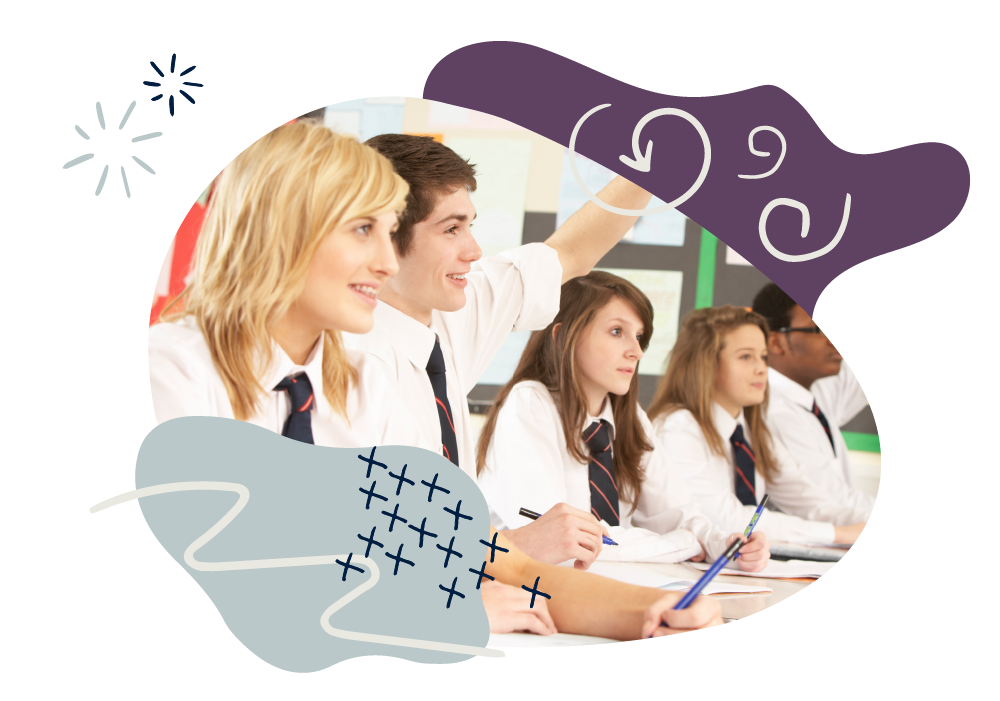Secondary school
The transition to secondary school – KS3 and beyond
When your child leaves primary school and starts their secondary education, it can be a nerve-wracking experience for you and your child. However, this next big step in your child’s learning is one of the most exciting moments in their education and, here at Oxford Owl, we’ve collated our top tips to ensure your child makes a flying start in their new school and flourishes throughout Year 7.
Take a look at our advice on choosing and applying for a school, what to expect in the first year, and settling into secondary school.
What to expect in Key Stage 3
The majority of Year 7 to 9 students will follow the Key Stage 3 national curriculum. We’ve summarised key points and requirements of the curriculum below.
What’s compulsory at Key Stage 3?
The compulsory national curriculum subjects* at Key Stage 3 are:
-
- English
- Maths
- Science
- History
- Geography
- Modern Foreign Languages
- Design and Technology
- Art and Design
- Music
- Physical Education
- Citizenship
- Computing
*If your child is due to attend an academy, free school, or a private secondary school, the school won’t have to follow the national curriculum. However, academies must teach a broad and balanced curriculum including English, maths, and science. They must also teach religious education. Faith schools have to follow the national curriculum, but can choose what they teach in RE.
English
In English, your child will be expected to:
-
- Read widely and in depth: a range of varied and challenging material.
- Acquire a wide vocabulary and an understanding of grammar and linguistic conventions for reading, writing and spoken language.
- Write clearly and accurately and adapt their written style for a range of contexts and audiences.
- Explain their understanding and ideas verbally, and participate in group discussion.
Literature plays a vital role in children’s cultural, emotional and intellectual development and many schools will encourage pupils to carry a reading book from the school library with them.
Maths
In maths, your child will be expected to:
-
- Study topics such as number (percentages, fractions and decimals), algebra, ratio, geometry, proportion, and statistics.
- Develop fluency, mathematical reasoning, and competence in solving increasingly sophisticated mathematical problems.
- Write clearly and accurately and adapt their written style for a range of contexts and audiences.
- Begin applying mathematical knowledge in other subjects, such as science, geography, and computing.
Science
In science, your child will be expected to:
-
- See the connections between biology, chemistry, and physics, and the big ideas underpinning scientific knowledge and understanding.
- Big ideas include structure and function in living organisms, the properties and interaction of matter, and the transfer of energy.
- Relate scientific explanations and phenomena to real-life examples and the world around them.
- Learn to ‘work scientifically’ – collecting, processing and recording data to evaluate results, and taking account of new evidence and ideas.
Modern Foreign Languages
In modern foreign languages , your child will be expected to:
-
- Learn at least one modern foreign language, though schools can choose which they teach.
- Develop confidence in listening, speaking, reading and writing, based on core grammar and vocabulary.
- Understand and communicate personal and factual information as well as points of view.
History
In history, your child will be expected to:
-
- Learn about the development of British society from Medieval Britain to the present day.
- Identify significant events, make connections and draw contrasts, analysing trends within a particular historical period and over long periods of time.
- Understand how different types of historical sources are used to make historical claims, and why contrasting interpretations of the past have been constructed.
History lessons are likely to combine both overview and depth studies.
Geography
In geography, your child will be expected to:
-
- Understand how geographical processes interact to create distinctive human and physical landscapes that change over time.
- Develop greater competence in using geographical knowledge and concepts, and analysing and
interpreting different data sources. - Increase knowledge of the world’s countries and understand their similarities and differences.
If you would like to learn more about the next stage, please take a look at some of our specific blog posts below – you will also find more articles from our experts over on our blog here.

Choosing a secondary school

Moving on up to secondary school
Find our best advice on the changes and challenges that come with moving up to secondary school here.

How to support your child as they start secondary school
Find out how to best support your child through this exciting change here.
Essential books for starting secondary school
Help your child get ready for secondary school with our workbooks and dictionaries, designed to help improve key maths and English skills.
